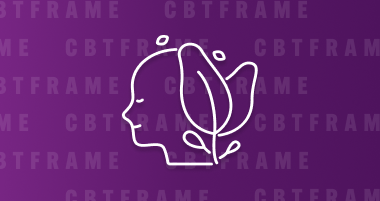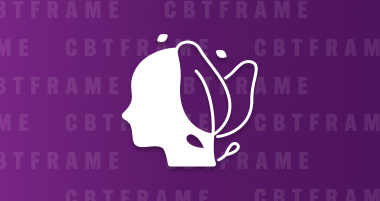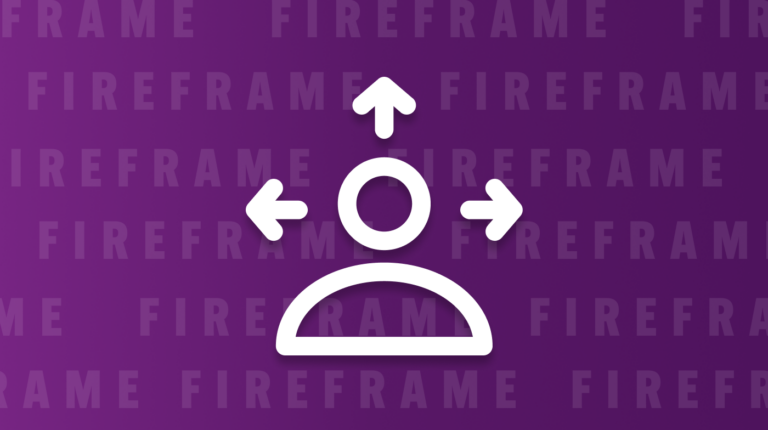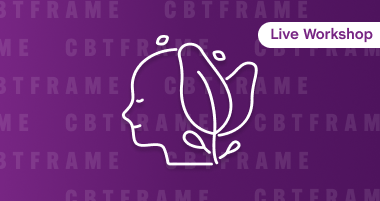
CBTFrame
Live Virtual Workshop
This 4 credit live interactive virtual workshop was developed for social workers, family therapists, counselors, and other mental health and substance use professionals. CBTFrame Live Virtual Workshop features technique descriptions, experiential activities such as roleplays, video modeling, and technique practice using case examples.
Learn more about the different ways we offer this course:

Live Workshop
Bundled pricing varies depending on the number of seats.

Standard Course
Take the training on your own time.

Extended Course
The convenience of self-paced modules with added instructor support.
Hosting Platform
Interactive synchronous distance learning via Zoom.
Learning Objectives
After attending this course, participants will be able to:
- Describe the conceptual bases behind the Cognitive Behavioral Therapy (CBTFrame) techniques.
- Recognize and differentiate between the CBTFrame techniques.
- Demonstrate the ability to observationally code the CBTFrame techniques on a five-point scale as they occur in mock video sessions.
- Give examples of how a functional analysis of behavior can be applied to your work as a treatment provider.
- Express the clinical benefits of breaking down the three-part model (thinking, feeling doing) within treatment.
- List specific treatment techniques for equipping adolescents with skills to better
understand and cope with difficult cognitions and emotions. - Define specific techniques for dissecting a problem behavior and coming up with potential solutions to discuss and/or try.
- Recognize the advantages of activity sampling, i.e. helping clients identify new, positive activities.
- Apply clinical techniques related to communication and assertiveness skills building
Demonstrate the ability to practice new skills within sessions. - Describe the benefits of involving caregivers in an adolescent’s treatment through updates or invitation to participate in sessions.
Agenda
Housekeeping
10 minutes
Check-in and Agenda overview
CBT Core Elements Manual and Online Training
10 Minutes
- How to use the manual
- Worksheet Appendix Introduction
- Introduction to video modeling and online training
Introduction to Core Elements of CBT (Items &Experiential Activities)
45 Minutes
Behavioral Assessment and CBT Psychoeducation
- Three Part Model: Today’s training (15 min)
- Functional Analysis of Behavior Problems: Michael plus case on caseload role play in pairs (30 min)
CBT Interventions
25 Minutes
- Cognitive restructuring: Interviewing activity (20 min)
- Emotion Regulation
Lunch Break
45 Minutes
Break
Online Training Walk Through
15 Minutes
Practice vignette coding activity
CBT Interventions
40 Minutes
CBT Interventions
- Activity Sampling
- Decision Making and Problem Solving: Problem solving activity (20 min)
- Communication and Assertiveness
Global Treatment Practices
30 Minutes
- In-Session Practice
- Action Plan
- Parent Participation
Motivational Interventions
30 Minutes
Motivational Interventions
Next Steps
20 Minutes
- Implementation Intention Activity
- Consultation
- ITT walk through
Online Training Walk Through
15 Minutes
Practice vignette coding activity
Wrap-up
15 Minutes
Wrap-up
Instructor Bio
Completion & Continuing Education (CE) Information

Partnership to End Addiction,[provider number], is approved as an ACE provider to offer social work continuing education by the Association of Social Work Boards (ASWB) Approved Continuing Education (ACE) program. Regulatory boards are the final authority on courses accepted for continuing education credit. ACE provider approval period: [dates]. Social workers completing this course receive 4 continuing education credits.
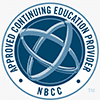
Partnership to End Addiction [provider# to be assigned] is recognized by the National Board of Certified Counselors as an approved provider of continuing education for licensed counselors.
Continuing Education Information
- All participants will be expected to participate in workshop activities in order to receive CE credits.
- Post-test to be completed immediately after course completion within the Learning Management System.
- Participants will be required to keep their cameras on for the duration of the workshop in order to receive CE credit. Attendance will be monitored throughout the training.
- The course evaluation must be completed for participants to be eligible to receive CE credit.
- Eligible participants will receive CE credit certificates via email within 14 business days. Certificates of completion are distributed by email only.
For any additional information related to subject matter, coding activities, comments, or problem resolution, contact our team at Academy@toendaddiction.org
Pricing Details
- Full refunds are issued only if a training is canceled by Partnership to End Addiction or at the discretion of Partnership to End Addiction based on written request.
- For partial refund of a Partnership to End Addiction training, registrants must withdraw prior to beginning the course.
We value inclusion and access for all participants and have worked to design the training for a variety of learners. Content includes captioned audio materials. If you need to request special accommodations, please contact Academy@toendaddiction.org
Course Interactions & System Requirements
This course is live and virtual. Course questions can be directed to: Academy@toendaddiction.org
System Requirements
Operating Systems: Windows XP or higher, MacOS 9 or higher, Android 4.0 or higher
Internet browser: Internet Explorer 9.0 or higher, Google Chrome, Firefox 10.0 or higher.
Broadband Internet connection: Cable, High-speed DSL & any other medium that is internet accessible.
Media viewing requirements: Adobe Reader & HTML5.




